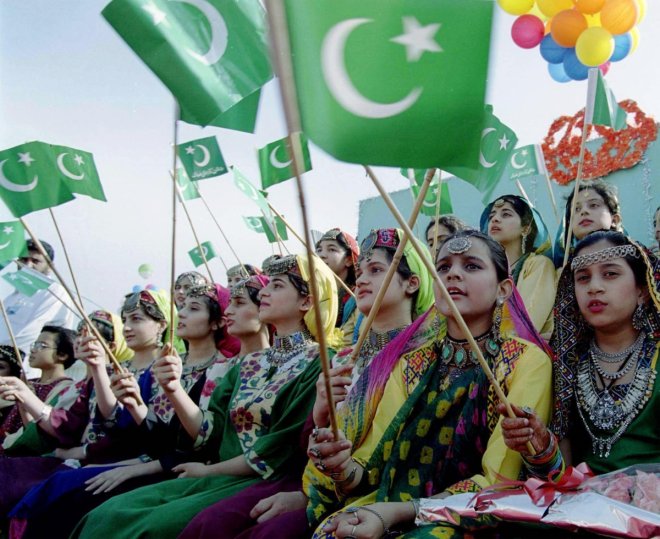
Pakistan was a part of India until each was made a separate dominion on August 15, 1947. Yet, Pakistan celebrates its Independence Day on August 14, not without reason.
As per the Indian Independence Act 1947, it is mentioned, "As from the fifteenth day of August, nineteen hundred and forty-seven, two independent Dominions shall be set up in India, to be known respectively as India and Pakistan." It also added, "The said Dominions are hereafter in this Act referred to as 'the new Dominions ", and the said fifteenth day of August is hereafter in this Act referred to as 'the appointed day '."
Mohammad Ali Jinnah, the founder and first Governor-General of Pakistan, said in his first Independence Day speech: "It is with feelings of greatest happiness and emotion that I send you my greetings. August 15 is the birthday of the independent and sovereign State of Pakistan." Then why does Pakistan celebrate Independence a day earlier? In fact, there are several interesting reasons behind this.
Transfer of power
The ceremony of the transfer of power in Karachi, the capital city of the province of Sindh in Pakistan, was actually held on August 14, even though Pakistan officially became independent a day later. The last viceroy of India then, Lord Mountbatten, who was attending it, also wanted to be present in Delhi on August 15. Another important factor was that August 14, 1947, was 27th day of Ramadan, an auspicious day in the Islamic calendar.
Eventually, August 14 began to be celebrated as the Independence Day of Pakistan, disregarding historical evidence against the fact. As noted by Pakistan news entity dawn.com, Manzoor Ahmed Butt, who is the recipient of the Pride of Performance award, which is the highest civilian honour conferred by the Government of Pakistan also believes that Pakistan was born on August 14, 1947.
Manzoor Ahmed told dawn.com: "After Pakistan came into being as an independent Muslim state on 14 August 1947, the announcement was made on the same night after 12am from Lahore, Karachi and Peshawar radio stations." The error he makes is considering 12 a.m. to be on the same night, when in fact, 12 a.m. is the beginning of the next day as well. So, what Butt was referring to was, in fact, the ceremony of transfer of power, not the actual birth of Pakistan as an independent nation.
History behind partition
However, what is more important is the reason why the two nations were separated. It is widely accepted historically that Mohammad Ali Jinnah's All-India Muslim League and the Indian National Congress could not come to an agreement on retaining a united India and felt that the majority Hindu and majority Muslim populated areas should have their own separate sovereignty.
The British had always practised a divide-and-rule policy because it allowed an easy governance. They had already experimented it when they divided Bengal based on communal lines in 1905. Bengal was reunited in 1911 due to political protests but was eventually divided again in 1947, with the Partition of India and the creation of Pakistan. East Bengal became part of Pakistan until the 1971 Bangladesh Liberation War, while West Bengal remained with India.
Last blow from Britishers
Today, Pakistan is at a perpetual war with India, with severalpeace talks and ceasefire agreements having failed repeatedly. Currently, they are fighting on the issue of Kashmir. if we delve back into past, we will see divisions have never led to peace but only created more strife. The legacy of the British policy of divide-and-rule is still creating bloodshed on both sides of the border.
Today, as reported by The Hindu, India and Pakistan are even engaged in a battle of who can hoist their flags higher than the other. The report said that on its 70th Independence Day, Pakistan claimed to have hoisted the tallest flag in South Asia, at the India-Pakistan border in Wagah. Pakistan's flag was hoisted at 400 feet, after India hoisted a flag at 360 feet height last year.
"We will foil the nefarious designs of anyone, who will try to cast an evil eye on Pakistan," is all that Pakistan's army chief Qamar Javed Bajwa had to say in his address at the Wagah border on Sunday-Monday midnight, The Hindu reports.
Since 15 August is the true independence day of both the nations, one prays that the two neighbouring countries work towards respect and peace, not violence. New Pakistan Prime Minister Shahid Khaqan Abbasi, on Monday, notes Hindustan times, has urged the international community to help resolve the Kashmir conflict. One hopes that the Kashmir valley truly regains peace, without further division.









